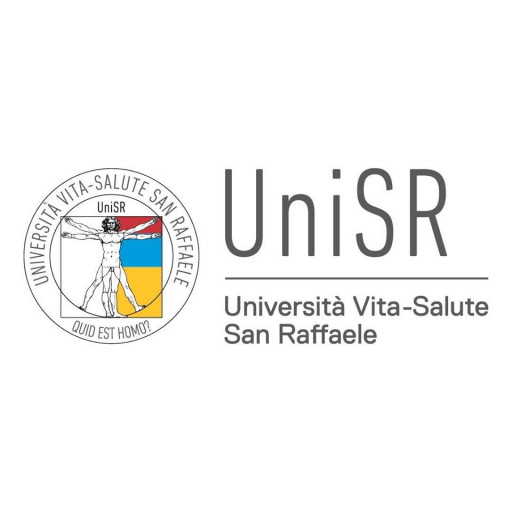Photos of university / #kocuniversity
Program Description:
The Bachelor of Arts in Psychology at Koç University is a comprehensive undergraduate program designed to provide students with a deep understanding of human behavior, mental processes, and the biological, social, and cultural factors that influence individuals and groups. Through a multidisciplinary approach, the program aims to equip students with both theoretical knowledge and practical skills to analyze, interpret, and apply psychological principles across various settings, including clinical, research, educational, and organizational environments.
The curriculum encompasses foundational courses in general psychology, developmental psychology, social psychology, cognitive psychology, and abnormal psychology, ensuring students grasp core concepts and methodologies in the field. Advanced elective courses enable students to specialize in areas such as clinical psychology, neuroscience, health psychology, or organizational psychology, fostering critical thinking and research competencies. The program emphasizes the scientific method, data analysis, and ethical considerations in psychological research and practice.
Koç University's vibrant academic community provides students with opportunities to engage in research projects, internships, and collaborations with faculty members who are experts in diverse areas of psychology. The program also encourages international perspective and cultural awareness, preparing graduates for careers in global and diverse contexts. Additionally, students benefit from state-of-the-art facilities, including dedicated laboratories and resources for experimental psychology and neuropsychology research.
Graduates of the Psychology Bachelor of Arts program at Koç University are well-prepared for graduate studies, clinical internships, or professional careers in fields such as mental health counseling, human resources, marketing, education, and public health. They gain critical thinking, analytical, communication, and ethical reasoning skills essential for making meaningful contributions to society and advancing understanding of human behavior.
Overall, the program aims to foster a comprehensive understanding of psychology, promote scientific inquiry and ethical practice, and develop professionals capable of addressing complex psychological issues in an increasingly interconnected world.
The Psychology undergraduate program at Koç University provides students with a comprehensive and foundational education in the scientific study of human behavior and mental processes. Designed to equip students with both theoretical knowledge and practical skills, the curriculum covers a wide range of topics including cognitive processes, developmental psychology, social psychology, clinical psychology, and neuroscience. Students engage in rigorous coursework that emphasizes critical thinking, research methodology, and data analysis to understand the complexities of human behavior from multiple perspectives.
Throughout the program, students have the opportunity to participate in hands-on research projects, internships, and collaborative studies, fostering an experiential learning environment. The faculty members are leading experts in their fields, guiding students through cutting-edge topics and encouraging innovative thinking. Program objectives also include developing students’ abilities to apply psychological principles to real-world issues, support mental health initiatives, and contribute to scientific research through their own projects.
Koç University's Psychology program emphasizes interdisciplinary learning, integrating insights from biology, medicine, and social sciences to prepare students for diverse career paths. Upon graduation, students will be well-equipped for further graduate studies or careers in clinical practice, counseling, research, education, or organizational consulting. The program also aims to cultivate ethical and culturally sensitive professionals who understand the societal relevance of psychological sciences. With state-of-the-art laboratories and a vibrant academic community, the program offers an enriching environment for students to grow academically, professionally, and personally, fostering a lifelong commitment to understanding and improving human well-being.
The undergraduate Bachelor of Arts in Psychology at Koç University requires students to complete a total of 120 ECTS credits over the course of their study period, typically spanning four years. The program is designed to provide a comprehensive understanding of both theoretical and applied aspects of psychology, including courses in general psychology, developmental psychology, social psychology, cognitive psychology, behavioral neuroscience, psychological measurement, and research methods. Students are required to fulfill core courses that establish foundational knowledge in psychological theories, as well as elective courses that allow specialization in areas such as clinical psychology, organizational psychology, or neuropsychology.
In addition to coursework, students must complete practical training components, including laboratory exercises and internship opportunities, which aim to develop hands-on skills and professional competencies. Research methodology and statistical analysis form a critical part of the curriculum, ensuring students acquire the necessary skills to design, conduct, and analyze psychological research effectively. The program emphasizes critical thinking, ethical considerations in psychological practice, and scientific inquiry.
To graduate, students must pass all required courses with a minimum grade point average specified by the university, typically a C or higher. The curriculum also includes a final year capstone project or thesis, enabling students to apply their cumulative knowledge to real-world psychological issues or research questions. Additionally, students are encouraged to participate in seminars, workshops, and conferences to augment their learning experience and stay updated on recent developments in the field.
Koç University’s Psychology undergraduate program also promotes interdisciplinary learning, encouraging students to take courses in related fields such as biology, sociology, and philosophy to enrich their understanding. The program aims to prepare graduates for careers in research, clinical practice, counseling, human resources, or further graduate studies. Maintaining high academic standards and fostering critical, analytical, and ethical competencies are fundamental aspects of the program’s requirements, ensuring that graduates are well-equipped for diverse professional paths in psychology.
The Psychology undergraduate program at Koç University offers a comprehensive financial aid and scholarship system designed to support talented and eligible students throughout their academic journey. The university provides various scholarships based on academic achievement, financial need, and other criteria, ensuring that qualified students have access to quality education regardless of their economic background. Merit-based scholarships are awarded to students with outstanding high school performance and academic excellence demonstrated during the admissions process. Additionally, need-based financial aid options are available for students who demonstrate financial hardship, enabling them to afford the tuition and associated costs of the program. Koç University is committed to fostering an inclusive learning environment by partnering with governmental and private organizations to expand financial support opportunities for students. The university also offers partial and full tuition waivers, as well as stipends that may cover living expenses, depending on the student's eligibility and academic standing. Students are encouraged to apply for multiple financial aid programs simultaneously and are advised to submit required documentation during the admission process to determine their eligibility. International students are also considered for scholarships, although the availability and criteria may differ from domestic students. The university’s Office of Financial Aid and Scholarships provides guidance and assistance to applicants throughout the application process, ensuring transparency and fairness. Scholarships are renewable based on academic performance and other specific requirements outlined by the university's policies. Koç University remains dedicated to supporting its students financially, recognizing the importance of accessible higher education in producing future leaders in the field of psychology and beyond.
The Psychology program at Koç University offers a comprehensive education in understanding human behavior and mental processes. Designed to equip students with both theoretical knowledge and practical skills, the program emphasizes critical thinking, research methods, and the application of psychological principles across various fields. Students enrolled in this program have the opportunity to study a wide range of topics, including cognitive psychology, social psychology, developmental psychology, clinical psychology, and neuroscience. The curriculum is structured to foster a strong foundation in scientific research, enabling graduates to pursue careers in research, clinical practice, consultancy, or further education. Koç University’s Psychology program benefits from experienced faculty members who are active researchers, providing students with mentorship and hands-on research experience. The university’s state-of-the-art laboratories and facilities support experimental work and data analysis, essential components of psychological research. Additionally, the program encourages interdisciplinary learning, involving courses and collaborative projects with departments such as brain and cognitive sciences, philosophy, and education. Students are also encouraged to participate in internships and fieldwork opportunities to gain practical insights into psychological applications in healthcare, education, and organizational settings. Graduates of the Psychology program at Koç University are well-prepared to contribute to psychological research and practice, meeting the demands of diverse professional environments. The university’s strong emphasis on international standards and research excellence ensures that students receive a high-quality education aligned with global developments in psychology. Overall, the program aims to develop reflective, analytical, and ethical practitioners and researchers capable of making meaningful contributions to understanding and improving human life.










